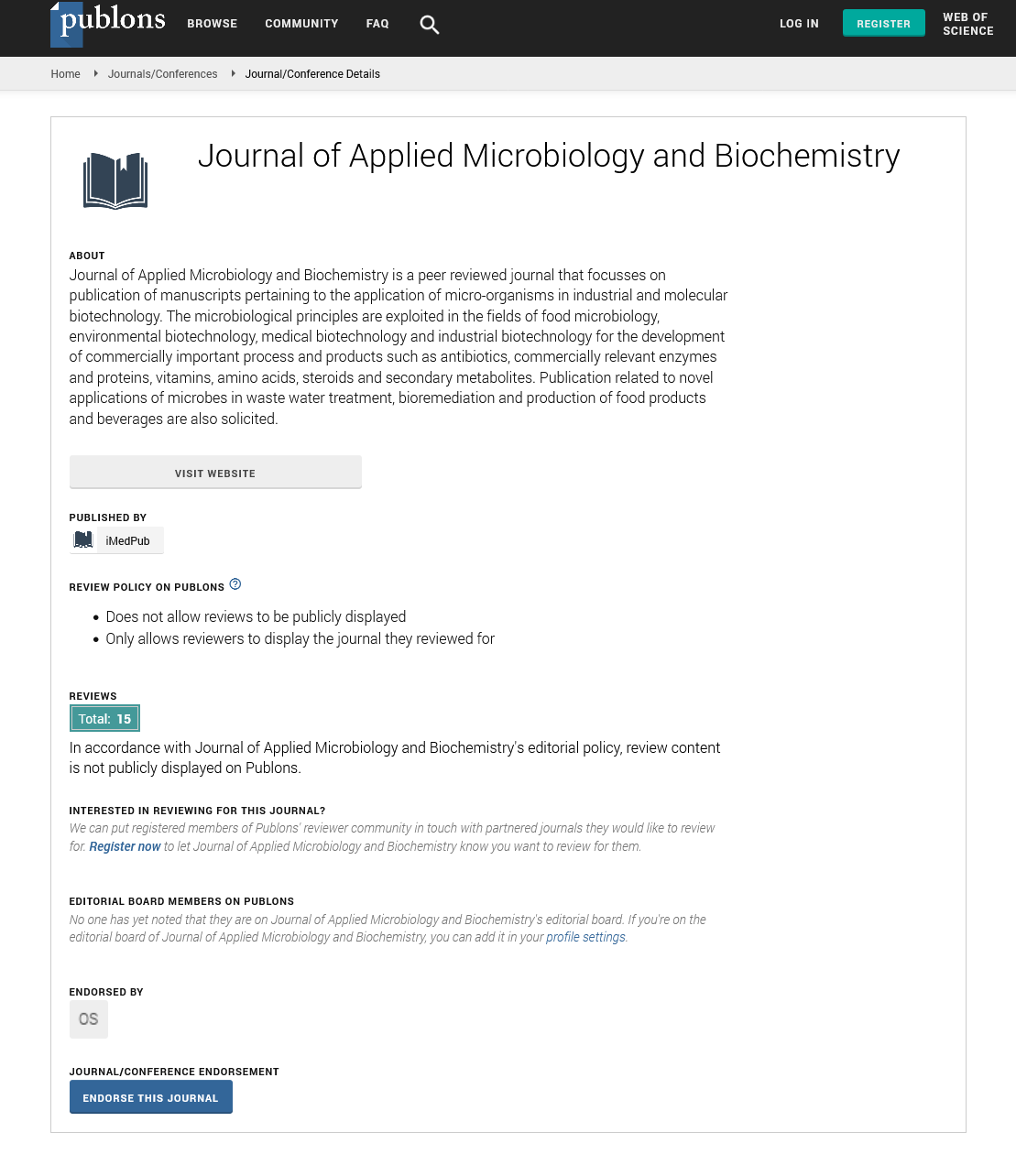ISSN : ISSN: 2576-1412
Journal of Applied Microbiology and Biochemistry
Abstract
Identification of Ethanologenic Yeast Strains from Wild Habitats
Bioethanol generated from household, agricultural or forestry waste is currently being pursued as the second generation biofuel with wheat straw being highlighted as a promising lignocellulosic residue feedstock in the UK. Natural fermentative ecosystems such as agricultural manure and forest floors containing decomposing wood and leaf litter are potential sources of yeast strains with suitable phenotypic characteristics for improved production of bioethanol. Identifying yeast with innate fermentation capabilities could potentially contain a pool of genes that confer resistance to the chemical constituents of lignocellulosic biomass. Wild yeasts were analysed using a phenotypic microarray for utilization of xylose and tolerance to pre-treatment inhibitors. Assays identified yeast which had stress tolerant phenotypes and yeast with xylose utilization capabilities. Performance fermentations confirmed desirable phenotypes such as conversion of xylose into ethanol and inhibitor tolerance, making these yeasts of interest for further industrial exploration and exploitation.
Author(s): Farooq AS, Greetham D, Somani A, Marvin ME, Louis EJ and Du C
Abstract | Full-Text | PDF
Share This Article
Google Scholar citation report
Citations : 342
Journal of Applied Microbiology and Biochemistry received 342 citations as per Google Scholar report
Journal of Applied Microbiology and Biochemistry peer review process verified at publons
Abstracted/Indexed in
- Google Scholar
- China National Knowledge Infrastructure (CNKI)
- Cosmos IF
- Directory of Research Journal Indexing (DRJI)
- Publons
- Secret Search Engine Labs
Open Access Journals
- Aquaculture & Veterinary Science
- Chemistry & Chemical Sciences
- Clinical Sciences
- Engineering
- General Science
- Genetics & Molecular Biology
- Health Care & Nursing
- Immunology & Microbiology
- Materials Science
- Mathematics & Physics
- Medical Sciences
- Neurology & Psychiatry
- Oncology & Cancer Science
- Pharmaceutical Sciences
